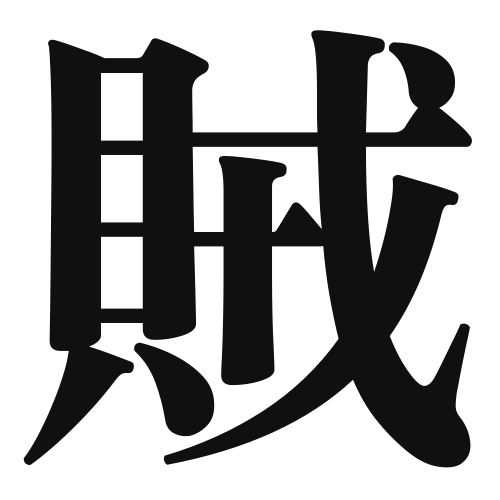1. Overview of Meaning
The kanji “賊” (zoku) means “thief” or “bandit.” It refers to someone who engages in theft or robbery, often implying a sense of criminality or wrongdoing.
2. Formation and Radical
The kanji “賊” is a compound character (会意文字) that combines the elements of “money” (賤) and “to harm” (賊). The radical of this kanji is “貝” (shell), which is often associated with money or valuables.
3. Examples of Usage
Common words and phrases that include “賊” are:
- 海賊 (かいぞく, kaizoku) – pirate
- 盗賊 (とうぞく, tōzoku) – thief or robber
Example sentence in daily conversation:
「彼は海賊の映画が好きです。」 (かれはかいぞくのえいががすきです。) – “He likes pirate movies.”
4. Synonyms and Antonyms
Similar kanji with related meanings include:
- 盗 (とう, tō) – thief, which specifically refers to someone who steals.
Antonyms include:
- 守 (まもる, mamoru) – to protect, which conveys the opposite meaning of harming or stealing.
5. Cultural and Historical Background
The concept of “賊” is deeply rooted in Japanese culture, often appearing in historical narratives and folklore. The term is associated with various proverbs and idioms, such as:
- 「賊は賊を呼ぶ」 (ぞくはぞくをよぶ) – “Thieves call to thieves,” meaning that bad company attracts more bad company.
This reflects the cultural understanding of morality and the consequences of associating with wrongdoers.
